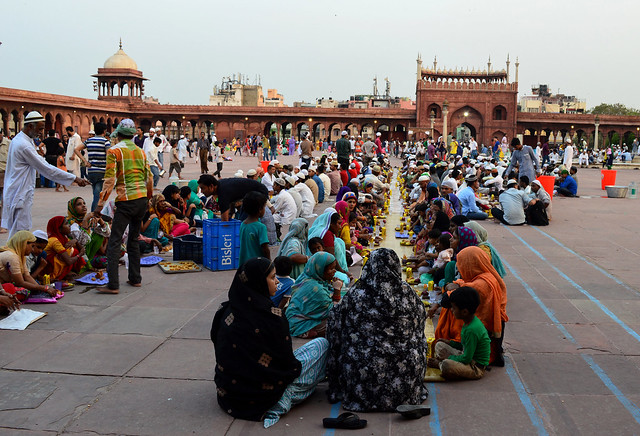Dr Mohammad Manzoor Alam
Assalamu Alaikum Wa Rahmatullah, everybody. We are meeting in the first ashra (10 days) of the holy month of Ramadan. This part of the month is rightly called Ashrah rahmat (Ten days of Allah’s Grace). Like any good thing in life these moments, days and nights of God’s grace, pass quickly. Before we know, half of this period of ten days is gone.
This month is a great gift from Allah to believers. The Prophet (PBUH) used to pray to God before the onset of Ramadan, “Lord, take us to Ramadan”. The moments of this month are so precious for its blessedness that the Prophet (PBUH) cherished its arrival and the opportunity to be living in it, surrounded by God’s grace.
The Prophet (PBUH) used to prepare himself to welcome this month by increasing his devotions, remembrance and prayers to Allah right from Shaban, the month preceding Ramadan. An intelligent person never does anything without adequate preparation. The spiritual significance of the month demanded great preparation to benefit from the occasion. Thus the Prophet (PBUH) not only increased his devotions and prayers significantly right from Shaban, but also intensified charitable work and care of the needy. A Muslim has to intensify his or her devotion and prayers in Ramadan and also work harder for the benefit of fellow human beings as well as other creatures of God, following in the footstep of the Prophet (PBUH).
In contemporary parlance, Ramadan can also be seen as a crash course on Muslim role in life – his or her relationship with Allah, His messenger (PBUH), acts of piety, prayer and care of family, friends, Ummah, humanity and creation at large. The month is particularly associated with the idea and practice of compassion. The voluntary deprivation of food and water sensitises the believers to other people’s hunger and thirst. Providing iftaar (food to break the fast) and water to people observing fast in Ramadan is a basic training to be sensitive to others’ hunger and thirst throughout the year.
Compassion is a central idea in faith. That it is central to Abrahamic faiths is described nicely by Karen Armstrong, a celebrated author of books on Seerah and Islam. Quoting an authority, she says, in Torah the only point to remember is compassion, the rest being commentary. This month has a particular relation with compassion. In the sub-continent, the ulema often call it “ghamkhwari ka maheena”, a month of sharing other people’s sorrow.
By its very nature the month demands a different work-rest schedule compared to the rest of the year. The emphasis shifts in this month from the usual pattern of making a living, prayer, rest and recreation to devotions, prayers, rest and livelihood. The daily life in West Asia is visibly altered in this month as the region goes on a month-long holiday to be able to concentrate on the devotions and prayers with greater intensity and focus. The rest of the world goes on with the usual rhythm of work, rest and recreation, but Muslims everywhere largely turn inward in remembrance of Allah and also increase acts of piety that help others. For instance, most people prefer to pay their zakat in this month. These funds are used to finance children’s education, help the indigent and other classes of needy people.
The month is associated with Islamic faith in a profound way. It is the month of the revelation of the holy Quran, which formalised, codified and perfected our faith for all time to come. The taravih prayers at night signify our gratitude to Allah for the gift of His Book to us. As the recitation of the verses from the Quran is completed cover to cover during the salat-e-taravih in Ramadan this prayer resonates with significance. Taravih earns great merit for those performing it. It is not mandatory or compulsory for many in Islam, yet its extraordinary merit cannot be denied.
In this fleeting month, the idea to earn as much sawab as possible for every act of piety brings in far more virtue in this month than the rest of the year. Striving in Allah’s way, devotions, remembrance and prayers as well as spending in His way is the focus of this month. The idea is to excel others and excel ourselves in acts of piety in Ramadan. This will set a pattern of thought and behavior for the rest of the year.
Be quick, as half of the first ashra is already gone. Don’t procrastinate.
(Dr Mohammad Manzoor Alam is Chairman of Institute of Objective Studies and General Secretary of All India Milli Council)


